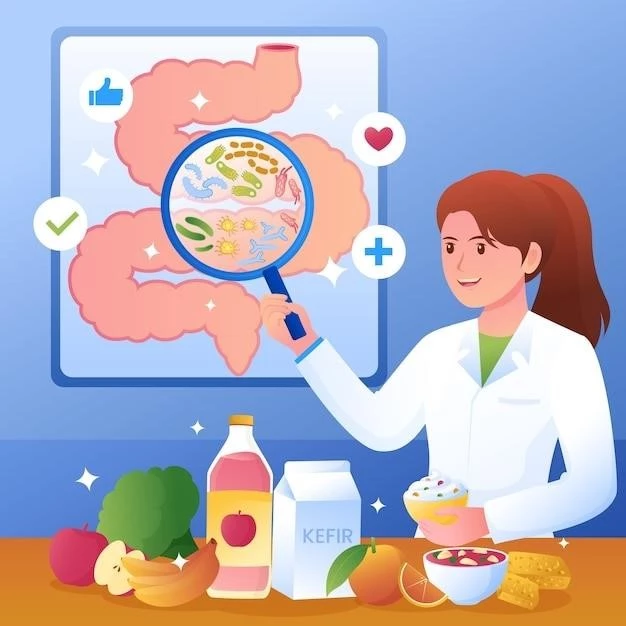Symptoms of Bacterial Food Poisoning
Recognize gastrointestinal n systemic symptoms early.
Gastrointestinal Symptoms
Recognize gastrointestinal symptoms⁚ diarrhea, nausea, vomiting, stomach cramps. Stay hydrated and seek medical attention if symptoms persist. It is crucial to monitor any changes and act promptly to treat bacterial food poisoning;
Systemic Symptoms
Pay attention to systemic symptoms⁚ fever, fatigue, muscle aches. These indicate bacteria affecting the entire body. Rest, stay hydrated, and seek medical care if symptoms worsen. Early detection and treatment are key to recovering from bacterial food poisoning.
Common Bacteria Causing Food Poisoning
Be aware of Salmonella, E. coli, Listeria, n Campylobacter. Prevent contamination by handling food safely.
Salmonella
Stay cautious⁚ Salmonella causes fever, diarrhea, abdominal cramps. Prevent infection by cooking poultry thoroughly and avoiding cross-contamination. If diagnosed with Salmonella infection, stay hydrated and follow medical advice for recovery.
E. coli
Protect yourself⁚ E. coli symptoms include severe abdominal cramps, bloody diarrhea. Avoid undercooked ground beef n unpasteurized dairy. If infected, seek medical attention to prevent complications like HUS. Hydration is crucial during recovery.
Listeria
Be vigilant⁚ Listeria symptoms may vary but include fever, muscle aches, and gastrointestinal issues. Pregnant women n immunocompromised individuals are at higher risk. Avoid unpasteurized dairy n deli meats. Seek medical help if symptoms arise to prevent severe complications.
Campylobacter
Be cautious⁚ Campylobacter causes diarrhea (often bloody), fever, and abdominal cramps. Avoid consuming undercooked poultry n raw milk. Stay hydrated and seek medical advice if symptoms persist. Prompt treatment can prevent complications associated with Campylobacter infection.
Treatment for Bacterial Food Poisoning
Hydrate n consider antibiotics in severe cases. Seek medical help promptly for proper care.
Hydration
Stay hydrated⁚ Drink plenty of water n oral rehydration solutions to replace fluids lost due to vomiting n diarrhea. Adequate hydration helps the body recover from bacterial food poisoning. Contact a healthcare provider if dehydration symptoms persist.
Antibiotics (in severe cases)
Consider antibiotics in severe cases⁚ Medical professionals may prescribe antibiotics to treat bacterial food poisoning when symptoms are severe or if there is a risk of complications. Follow the prescribed antibiotic regimen carefully to ensure effective treatment and recovery.
Prevention of Bacterial Food Poisoning
Adhere to safe cooking practices n proper food handling to prevent bacterial contamination.
Cook food thoroughly
Cook food thoroughly⁚ Ensure meats, poultry, n seafood reach safe internal temperatures. Avoid consuming undercooked foods to prevent bacterial contamination n food poisoning. Use a food thermometer to verify that all items are cooked to the recommended temperature.
Proper food storage
Practice proper food storage⁚ Refrigerate perishable items promptly, store raw meats separately, and follow expiration dates. Prevent bacterial growth by keeping food at safe temperatures. Thaw frozen items in the refrigerator or microwave to avoid contamination and reduce the risk of foodborne illnesses.
Hand hygiene
Emphasize good hand hygiene⁚ Wash hands thoroughly with soap and water before handling food, after using the bathroom, and after touching raw meats. Proper handwashing is essential to prevent the spread of bacteria and reduce the risk of foodborne infections. Use hand sanitizers when soap and water are not available.
Avoid cross-contamination
Prevent cross-contamination⁚ Use separate cutting boards for raw meats and ready-to-eat foods. Clean utensils and surfaces after contact with raw ingredients. Store raw meats at the bottom of the refrigerator to prevent drips onto other items. Avoid mixing utensils between raw and cooked foods to reduce the risk of bacterial contamination.
Complications of Bacterial Food Poisoning
Stay vigilant for dehydration, HUS, n reactive arthritis. Prompt treatment is crucial for recovery.
Dehydration
Recognize signs of dehydration⁚ Increased thirst, dry mouth, dark urine. Replenish fluids with water n oral rehydration solutions. Severe dehydration requires medical intervention. Monitor hydration levels, especially in young children n older adults, to prevent complications during bacterial food poisoning.
Hemolytic uremic syndrome (HUS)
Be aware of HUS⁚ Caused by certain bacteria strains, leading to kidney damage. Look out for decreased urination, fatigue, n pallor. Immediate medical attention is crucial to manage HUS complications. Stay vigilant for symptoms in individuals affected by bacterial food poisoning.
Reactive arthritis
Watch for reactive arthritis⁚ Joint pain, swelling, n inflammation following bacterial infection. Practice proper hygiene n seek medical advice if experiencing joint issues post-food poisoning. Timely intervention and treatment can help manage reactive arthritis linked to bacterial infections.
Diagnosis of Bacterial Food Poisoning
Seek stool culture n blood tests for accurate diagnosis. Consult healthcare professionals promptly.
Stool culture
Utilize stool culture⁚ Healthcare providers use stool samples to identify bacteria causing food poisoning. Follow healthcare advice on collecting samples properly to ensure accurate results. Stool cultures aid in determining the specific bacterial strain, guiding treatment decisions for bacterial food poisoning cases.
Blood tests
Consider blood tests⁚ Healthcare professionals may order blood tests to detect bacterial toxins or antibodies. Blood tests help confirm bacterial food poisoning diagnoses. Follow medical recommendations for blood testing to facilitate accurate identification of the bacteria responsible for the infection, aiding in appropriate treatment selection.
Outbreaks of Bacterial Food Poisoning
Stay informed about recent cases. Learn how health authorities respond to ensure public safety.
Recent cases in the news
Stay updated⁚ Follow news reports on recent bacterial food poisoning outbreaks. Stay vigilant and informed about affected products or locations. Awareness of ongoing cases can help you take preventive measures and stay cautious when handling food, reducing the risk of infection.
How health authorities respond
Trust health authorities⁚ Health agencies investigate outbreaks, identify sources, and implement control measures. Follow guidelines issued by authorities during foodborne illness outbreaks. Cooperation with health directives helps contain the spread and ensures the safety of the community. Report any symptoms or concerns to the relevant health department promptly.

Risk Factors for Bacterial Food Poisoning
Understand risks⁚ Eating undercooked foods, weakened immune system, and age extremes can increase susceptibility.
Eating undercooked foods
Stay cautious⁚ Avoid consuming undercooked meats, poultry, and eggs. Cook foods to recommended temperatures to kill harmful bacteria. Proper cooking practices minimize the risk of foodborne illnesses caused by consuming raw or undercooked foods.
Compromised immune system
Take precaution⁚ Individuals with compromised immune systems are more vulnerable to bacterial food poisoning. Follow strict food safety measures to reduce the risk of infection. Consult healthcare providers for guidance on safe food handling practices tailored to immune system health. Protect your well-being by minimizing exposure to potential bacterial contaminants.
Age extremes (young children, elderly)
Exercise caution⁚ Young children and the elderly are at higher risk for severe complications from bacterial food poisoning. Ensure food is prepared and stored safely to protect vulnerable age groups. Monitor symptoms closely and seek medical attention promptly if signs of foodborne illness arise in young children or older adults.
